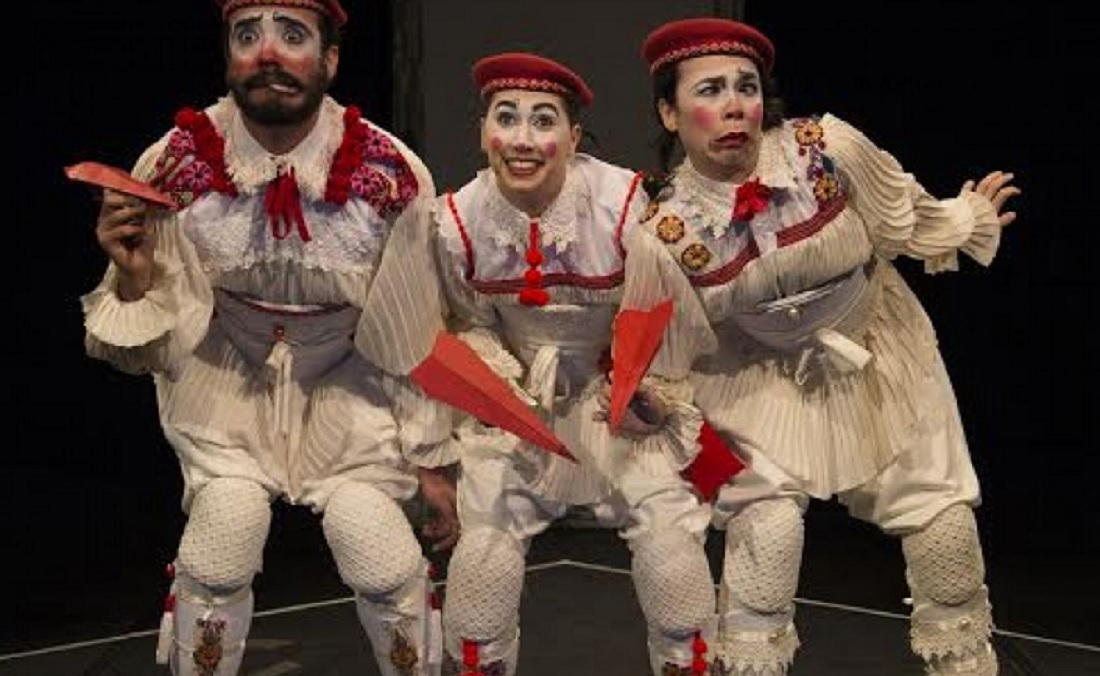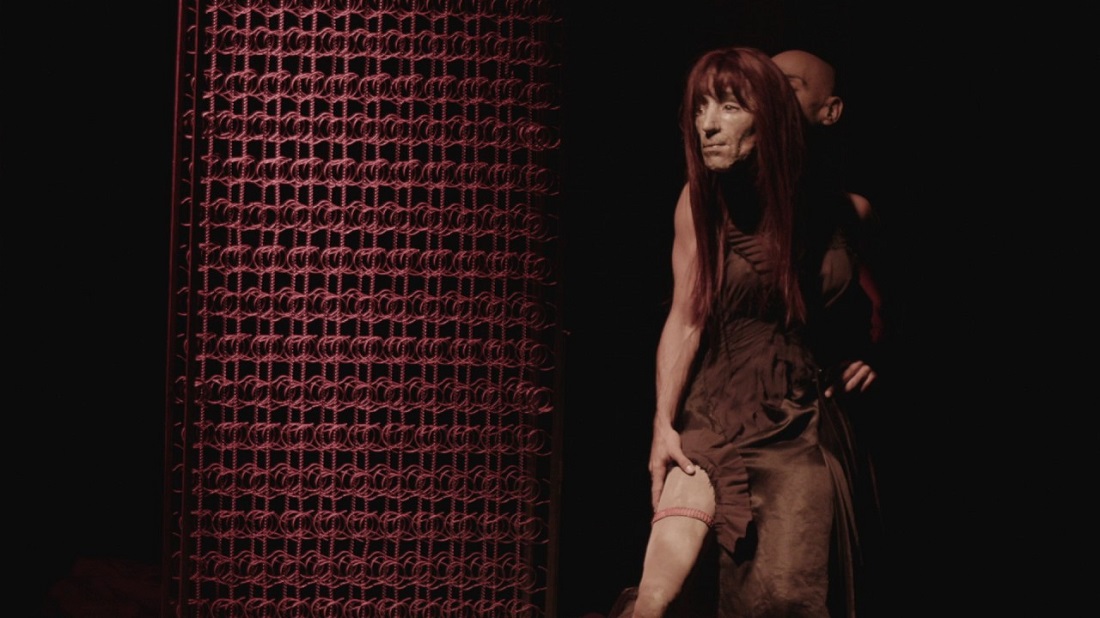RIO DE JANEIRO, BRAZIL – There were five minutes to go before the public would enter and watch the 6 PM performance of the theatrical show “Abrazo”, at Caixa Cultural do Recife, when the company Clowns de Shakespeare was told that the session had been canceled.
The play, which addresses topics such as repression and censorship, was banned by the host federal banking institution without any discussion. Created in 2014 in the wake of the 50th anniversary of the Brazilian military coup, the show had already toured in about 20 states over the past five years.

The canceled performance would have been the second that same day, September 7th. Clowns de Shakespeare had signed a contract with Caixa [Economica Federal, a state-owned bank] for a season of eight performances in Recife and Curitiba, for which it would receive R$220,000. The same edict also provided for rounds of talks and a workshop.
That afternoon, after the first performance, the group held an open chat with the audience. They answered questions ranging from technical questions related to the work to reflections on the current Brazilian situation.
“We talked about the coup [referring to the impeachment of former president Dilma], about a government elected by vote, but which operates through prejudice. We debated political issues, but it was a regular conversation,” says the group’s artistic director, Fernando Yamamoto.
A few days later, the company was told that the contract had been canceled. None of the seven planned performances would happen. The reason, according to Caixa: the group had breached a contract provision, which prohibited negative speech about sponsors.
Caixa Cultural’s decision to cancel the show Abrazo adds to another case that has fueled the fear of censorship returning to Brazil, spread mainly on social media.

Dos à Deux Company won a similar bid to display its repertoire – this time at the Caixa headquarters in Brasília, between September 18th and 22nd. The company agreed, on August 13th, that the shows ‘Aux Pieds de la Lettre’, a production about madness, and ‘Gritos’, a play in which a transvestite character appears naked in one of the scenes, would be staged.
The theater company had first sent all documents for the hiring of the works, as well as promotional materials. In early September, Caixa Cultural specifically asked for the synopsis of ‘Gritos’ and, upon receiving it, asked for more details about the show, something that had not happened at that time with the other show.
Days later, it asked for complete videos of the two works and then suggested that ‘Gritos’ be replaced, without explaining why.
Dos à Deux Company states that it was “forced to remove the show from the project”. As there was no time or logistical resources for its replacement, the two parties decided that only ‘Aux Pieds de la Lettre’ would be staged and that a workshop and a round of talks would offset the removal of the second work.
After the agreement, the company was notified that the contract could only be signed once it had been approved by the superintendent of the institution. The Caixa Econômica Federal is headed by Pedro Guimarães, a member of President Jair Bolsonaro’s team since the Government’s transition period.
The two theater companies that had their works questioned say that at no time during discussions surrounding the call for proposals was there the involvement of the bank’s superiors.
In a note, Caixa Cultural, which has reinforced its cultural support in all areas and the investment of R$17 million in 150 projects in the call for tenders alone, said that the program’s selection process “involves assessment stages by external consultants with distinction in the cultural environment and by Caixa Cultural employees, who are bank career employees and follow the Institution’s same policies and guidelines”.

Fear of veiled censorship
Suspensions and cancellations of theatrical performances in recent weeks have fueled fears of veiled censorship being introduced in an already troubled backdrop for Brazilian culture.
The sector, which had been suffering successive cuts in funding in previous administrations, has recorded significant losses under Bolsonaro’s government. The president has extinguished the Ministry of Culture.
Recently, he included the cancellation of a public notice for the promotion of LGBT-themed public TV series and for support programs for Brazilian filmmakers to attend international film festivals in the wake of budget cuts in different areas.
The right-wing President, who is often incisive in his statements against what he calls “gender ideology” and in defense of the military dictatorship, actually threatened to extinguish the National Film Agency (ANCINE) last July, should he be unable to filter the works to be financed by the public body.
An alarm was raised among producers that these cuts would be indirectly used to prevent works that run counter to the president’s conservative views, even without his express determination.
The issue gained such relevance that censorship was the subject of a public hearing in the Lower House last Wednesday. Cultural producers believe that the president’s statements have been impacting the tip of the Brazilian cultural chain.
When the LGBT-themed series call for proposals was canceled, Bolsonaro celebrated the cut in a live broadcast on Facebook. He specifically mentioned the ‘Afronte’ project, directed by Bruno Victor and Marcus Mesquita. The series included five episodes about young black and gay people in the Federal District.
“I confess I can’t understand it. So, one more film that got thrown in the bin”, said the president. Bruno Victor says he has no idea how Bolsonaro had access to his project since ANCINE had not officially released the list of selected films. “This was live censorship”, he states.
Fernando Yamamoto, theater director, says that, since Caixa Cultural terminated the contract with Clowns de Shakespeare Company, he has been receiving only private messages of support from performers, as they fear protesting publicly and losing public funding amidst limited funding and worse working conditions.
“At the very least, there is the establishment of self-censorship, because many artists are afraid of suffering reprisals,” he says.

Stalemate in court
The case of Clowns de Shakespeare was brought to court, where the company is attempting to reverse the contract rescission.
In the decision reported to Yamamoto’s company, Caixa stated that the content of the round of talks had violated item VII of Clause Four of the contract, which determines the hired group’s duty to “ensure the sponsors’ good reputation, by not making public references of a negative or derogatory nature”.
The institution only told the group that it had video evidence, without detailing which statements had been construed as negative or pejorative. Urged by the Federal Prosecutor’s Office, Caixa sent a letter in which it reproduced part of the discussion between the audience and the actors.
The document points out that the actors tell the audience that they had suffered resistance when they presented the show’s project for a call for proposals “quite recently”.
“We are suffering from very specific requests for video of the show, of the projections… something that has never before been asked like this, issues about the material of the shows being scrutinized,” commented an actress in the show, according to an official statement by Caixa.
The group claims it was not given the opportunity to defend itself and that the decision was unilateral.
Last Wednesday, the Federal Prosecutor’s Office (MPF) recommended that Caixa Cultural resume the contract on the grounds that the Constitution guarantees free expression of thought and that the abrupt cancellation of the contract did not provide the group with the right to defend itself.
The body set a deadline of five days for the institution to respond to whether or not to comply with the decision, subject to the risk of suffering other administrative measures. Caixa has confirmed to EL PAÍS that it has been notified and says it will reply within the legal deadline.
Lawyers Rodrigo Salinas, Kátia Catalano, and Ana Carolina Capozzi – who work in an office specialized in the cultural area – say it is common for sponsorship contract clauses to forbid the recipient from offending the sponsor’s image or brand, including the government’s administrative performance.
In cases of direct sponsorship calls and laws to encourage culture, in which the government is not a project sponsor, this clause would be illegal.
As Caixa is a federal administrative entity, wholly owned by the federal government, the lawyers maintain that the investigation of any breach of contract would require a prior administrative proceeding, with the possibility of defense by the sponsored party before the application of any sanction.
Asked by EL PAÍS about the withdrawal of the play ‘Gritos’ from its program, Caixa simply said that it selected the show ‘Aux Pieds de la Lettre’ among the group’s entire repertoire.
The institution also failed to comment on the echoes that there was censorship in the case of the two theater companies. “We are in the middle of all these questions. We are not accusing Caixa of having removed the play, we are questioning what determines which play can or cannot be shown. Caixa Cultural was a partner for this project to take place.”
“And there is an important cultural work in this lack of funds that we are going through,” says Artur Luanda Ribeiro, actor and one of the directors of Dos à Deux Company.

Faced with the case’s repercussion in the press and social media, the company published a note in which it states that it has not made any posts regarding the execution of the project in Caixa Cultural de Brasília.
The company stresses that it has not yet faced any objections from the institution’s employees.
Source: El País

